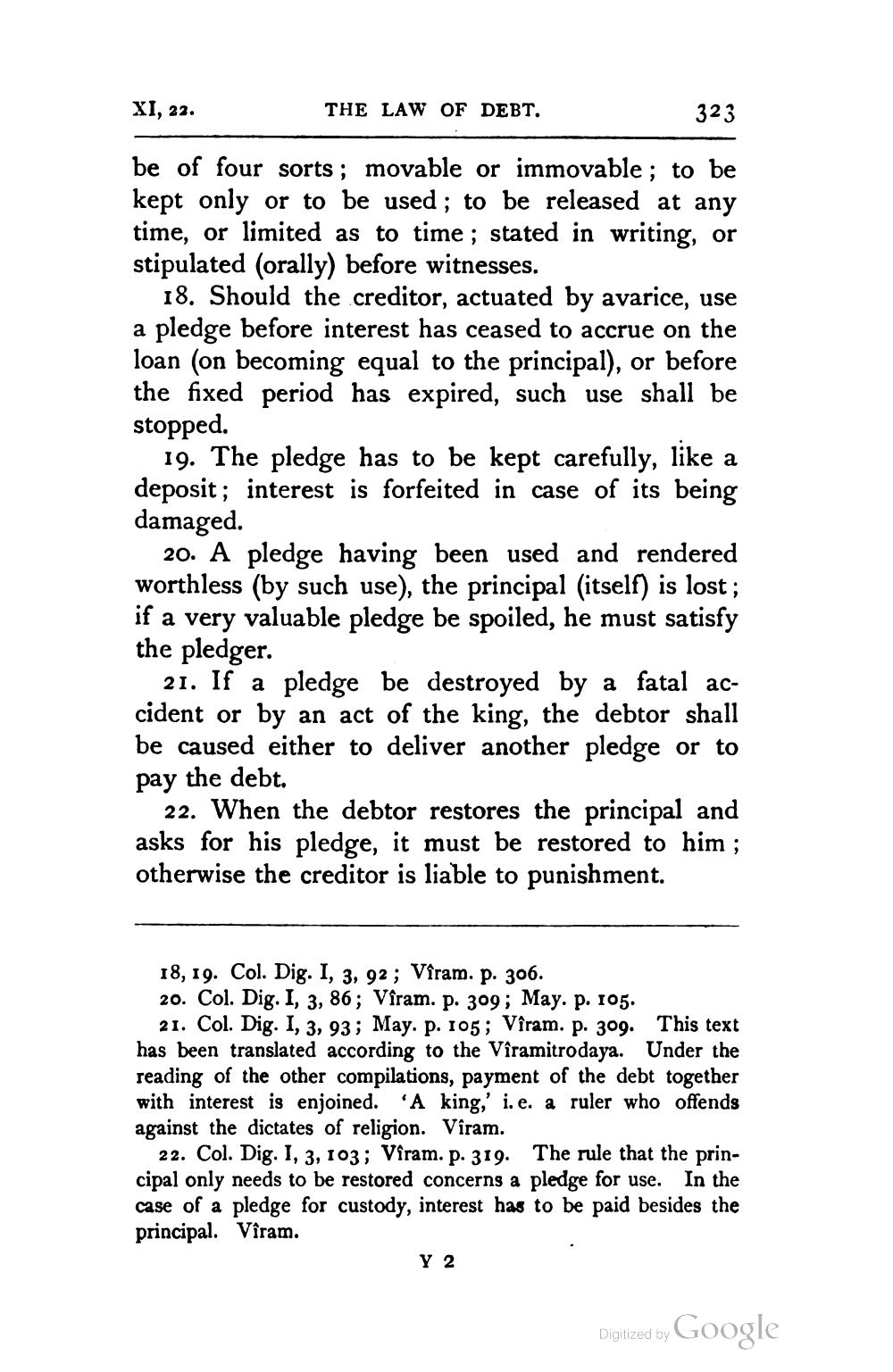________________
XI, 22. THE LAW OF DEBT.
323 be of four sorts; movable or immovable; to be kept only or to be used ; to be released at any time, or limited as to time ; stated in writing, or stipulated (orally) before witnesses.
18. Should the creditor, actuated by avarice, use a pledge before interest has ceased to accrue on the loan (on becoming equal to the principal), or before the fixed period has expired, such use shall be stopped.
19. The pledge has to be kept carefully, like a deposit; interest is forfeited in case of its being damaged.
20. A pledge having been used and rendered worthless (by such use), the principal (itself) is lost; if a very valuable pledge be spoiled, he must satisfy the pledger.
21. If a pledge be destroyed by a fatal accident or by an act of the king, the debtor shall be caused either to deliver another pledge or to pay the debt.
22. When the debtor restores the principal and asks for his pledge, it must be restored to him ; otherwise the creditor is liable to punishment.
18, 19. Col. Dig. I, 3, 92 ; Vîram. p. 306. 20. Col. Dig. I, 3, 86; Vîram. P. 309; May. p. 105.
21. Col. Dig. I, 3, 93; May. p. 105; Vîram. p. 309. This text has been translated according to the Vîramitrodaya. Under the reading of the other compilations, payment of the debt together with interest is enjoined.'Aking,' i.e. a ruler who offends against the dictates of religion. Vîram.
22. Col. Dig. I, 3, 103 ; Viram. p. 319. The rule that the principal only needs to be restored concerns a pledge for use. In the case of a pledge for custody, interest has to be paid besides the principal. Vîram.
Y 2
Digitized by Google




